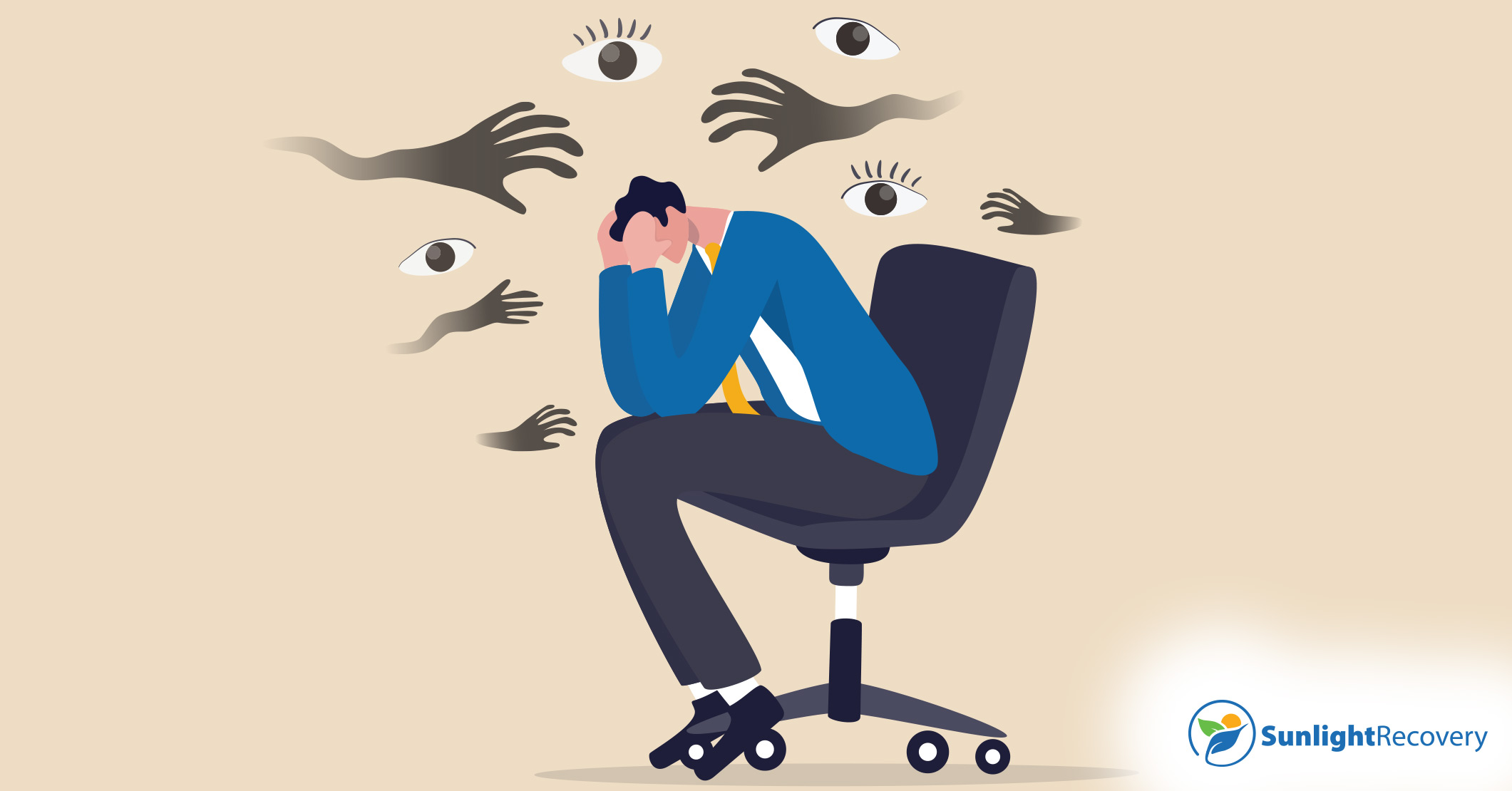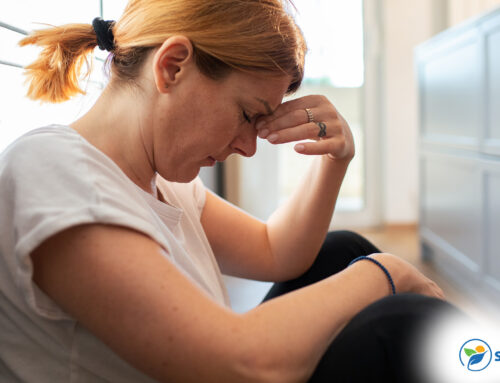If you’re struggling with distressing anxiety symptoms, such as breathlessness or chest tightness, you may worry that stress can kill you. Whether you avoid talking about your worries or spend hours searching for reassurance online, fear of death can make living with anxiety more challenging.
Fortunately, the right information and support can help you manage your concerns and find effective treatment. Below, we’ll outline the facts about anxiety and mortality, bust some common myths and explain how to find relief.
Understanding Anxiety Disorders
While feeling anxious is normal during stressful times, anxiety disorders differ from the nervous feelings we all experience sometimes. People with anxiety disorders feel excessively fearful or worried beyond the levels of anxiety expected in a particular situation.
These feelings can make carrying out your normal activities difficult and may impact your relationships and school or work life. You may take steps to avoid places, people or situations that trigger your anxiety.
Although anxiety disorders can be distressing, they’re also widespread. According to the National Institute of Mental Health, anxiety disorders affect over 30% of Americans during their lifetime.
There are several types of anxiety disorders, including:
- Generalized anxiety disorder (GAD). GAD causes persistent, disproportionate anxiety. A person’s worries usually center around regular activities such as work or socializing.
- Panic disorder. People with panic disorder experience overwhelming episodes of physical, emotional and psychological symptoms called panic attacks. Panic attacks vary from person to person and may occur out of the blue or following exposure to a trigger.
- Phobias. Phobias are chronic, excessive fears of specific situations, items or activities that don’t pose an objective threat to the affected person. Avoiding fears can significantly interrupt daily activities.
- Separation anxiety disorder. This disorder causes persistent fear when separated from a particular person. It can make it difficult to attend work, school or social events without the attachment figure.
Some people have a higher risk of developing an anxiety disorder than others. Children who feel stressed in unfamiliar situations are more likely to experience anxiety disorders in adulthood, and traumatic or unpleasant experiences can also increase the risk. You may be more genetically prone to anxiety disorders if you have a family history of mental health problems.
Sometimes, anxiety symptoms can be a sign of an underlying medical problem, such as a heart arrhythmia (fast, slow or irregular heartbeat). Consuming certain medications, illegal drugs or excessive caffeine can also trigger anxiety.
Physical Effects of Anxiety
Although anxiety is a mental health disorder, it can cause genuine physical symptoms. Research shows your mental health can impact your physical well-being. The physical symptoms of anxiety disorders can include:
- Increased heart rate
- Sweating
- Rapid breathing
- Fatigue
- Gastrointestinal symptoms
Some people with anxiety disorders experience a sense of danger or impending doom, especially during panic attacks. A panic attack can also cause physical symptoms to intensify, and the change often happens suddenly. For example, many people report experiencing chest pain, dizziness and numbness or tingling in their extremities.
Sometimes, the symptoms of a panic attack can mimic those of life-threatening medical emergencies, such as a stroke or heart attack, and the person may worry that they’re dying. Telling the difference between anxiety symptoms and a medical emergency can be challenging, so it’s essential to see a doctor for an accurate diagnosis.
Can Stress Kill You: Exploring the Relationship Between Anxiety and Mortality
Knowing you can’t die from a panic attack can provide reassurance when your symptoms feel overwhelming. During a panic attack, stress hormones cause your heart rate to increase, and your body prioritizes sending oxygen to your muscles to prepare you to fight or flee. Rapid breathing can also decrease the amount of oxygen entering your body.
These physical responses to fear explain some of the more distressing symptoms associated with panic attacks, such as breathlessness and numbness. However, panic attacks aren’t fatal — your heart will keep beating, and you won’t stop breathing.
Whether you can die from stress and anxiety is more complex. Although research on the link between anxiety and mortality is scarce, a 2023 large-scale study yielded encouraging results. Researchers looked at the outcomes of 345,903 British people diagnosed with anxiety and compared them to a control group of 691,449 unaffected patients. Between January 2005 and January 2018, only 5.5% of the people with an anxiety diagnosis died, compared to 4.7% of people in the control group.
Therefore, the researchers concluded that anxiety only slightly increases your risk of death. They also analyzed patient outcomes by type of anxiety disorder. People with phobias were no more likely to die during the study period than people without an anxiety disorder.
It’s worth noting that people included in the anxiety disorder group were more likely to smoke and drink heavily than those in the control group. Smoking and consuming alcohol can both increase your risk of death, making the connection between anxiety and mortality even more complex to unravel.
Managing Anxiety and Reducing Risk
While the data on anxiety and mortality is reassuring, living with the symptoms can significantly impact your quality of life. Anxiety disorders are more likely to negatively affect your enjoyment of life if you leave them untreated. Fortunately, several effective treatment options are available to ease your symptoms.
Every person with anxiety is different, and a mental health specialist can create a personalized treatment program to suit your needs and goals. Talking therapies, such as cognitive behavioral therapy (CBT) and exposure therapy (ET), can help you address the root cause of your anxiety, and your doctor may recommend medications to manage distressing symptoms. Holistic therapies, such as acupuncture, meditation and exercise, also help reduce stress and support better physical and mental health.
Although you can’t die from a panic attack, research shows anxiety can increase your risk of addiction. Furthermore, self-medicating your symptoms with alcohol or drugs can make anxiety worse. Substance abuse increases your mortality risk, so seeking support is essential. A specialized rehab program can help you detox from drugs and alcohol safely while treating your underlying anxiety disorder to reduce the risk of relapse.
Take the First Step Toward Recovery
Worrying whether stress can kill you is distressing, but the right support can ease your fears. At Sunlight Recovery, our team of compassionate experts has extensive experience helping people with anxiety disorders manage their symptoms and lead happier, healthier lifestyles. Contact us today to find out more about our mental health treatment programs.






